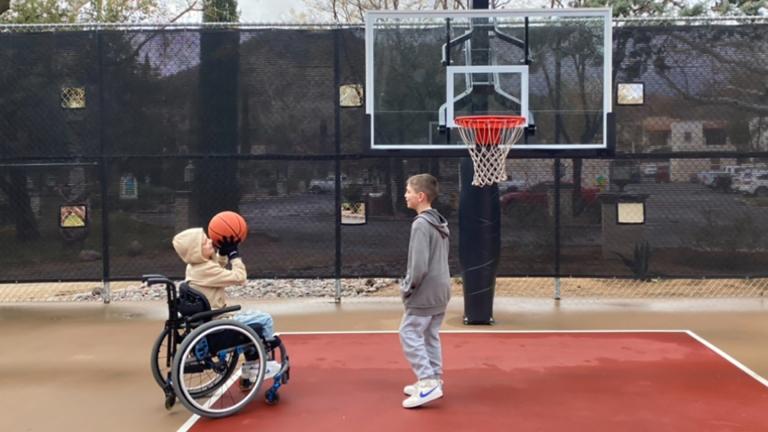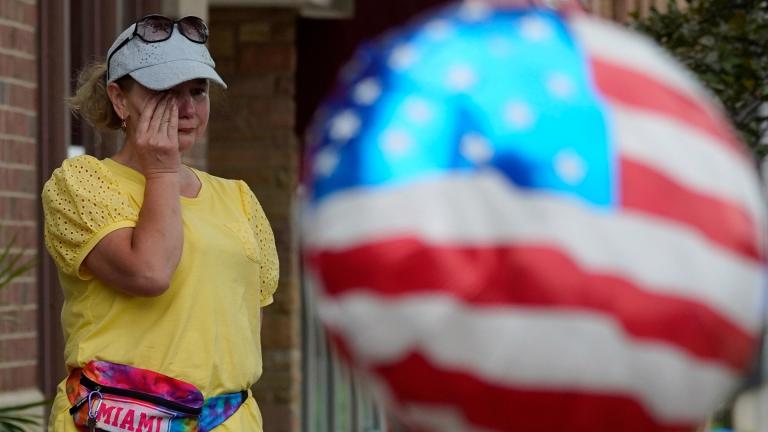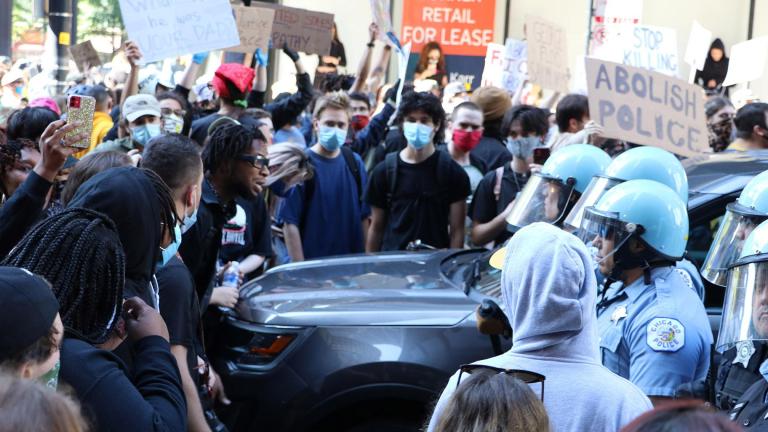Nekenya Hardy and Les Jenkins know the streets of the Austin neighborhood inside and out.
They have lived in the community their entire lives and both say they ran with the wrong crowd and separately have been shot.
Hardy says he made the choice to turn his life around after spending time in jail.
“I realized that what I got to do is very important, for my family, friends, for my community,” Hardy said.
Hardy went to work as a street outreach coordinator for the Institute for Nonviolence Chicago, one of a network of nonprofits that provides violence intervention services.
Vaughn Bryant, executive director of Metropolitan Peace Initiatives, says there are around 260 street outreach workers across the city — many of them from violent backgrounds themselves.
“That’s what makes them credible, gives them the license to operate,” Bryant said. “They know the people, they have the relationships. They’ve lived that life but they’ve also turned their lives around to a positive direction.”
The work begins by reaching out to young people who might one day become victims or perpetrators of gun violence and giving them guidance.
“You don’t wanna just be no outreach worker to them. You want them to feel like you a bigger brother,” Hardy said. “You want them to feel like you care about them. You want them to feel like you love them. You want them to feel like you there with ‘em. Even if there is no incident, you’re building that relationship with them.”
Hardy and Jenkins say the youth they work with have hidden trauma and that victims or witnesses of gun violence carry around anger or anxiety they might not be aware of.
“What we consider to be trauma, we normalize it as normal,” Jenkins said. “But it’s not normal. You just got shot, you come back to the neighborhood, they patting you on the back. ‘Joe, you’re back.’ We have to mask our feelings, we have to normalize whatever we’re feeling at this time. And that’s the community code, and saying you’re alright. But emotionally, psychologically, mentally, you’re not OK.
They say the trauma leads to a general distrust of one another — where a young person might be at risk of violence for wearing clothes the wrong way, or walking down the wrong block.
“You could just be a face that they don’t know, walking up the block, you suspicious, you dangerous,” said Hardy. “They gonna watch you. If they aint know who you is and you just walking in their area, they’re going to be alert about you and any slight movement can get you hurt.”
Hardy and Jenkins say it often is the personal conflicts — not necessarily gang activity — that leads to retaliation.
“It could end up from something petty,” said Hardy. “It could end up from somebody bumping heads in a nightclub and, you know, it could end up from stuff from Facebook, social media.”
That’s where the complicated work of trying to mediate a conflict before it escalates comes in. Jenkins says it starts by listening without judging.
“And what I notice a lot of times when I have a face-to-face conversation with a lot of these young brothers and sisters is that they’re crying out for help,” Jenkins said. “And, and you have to be ready.”
Follow Paris Schutz on Twitter: @paschutz







